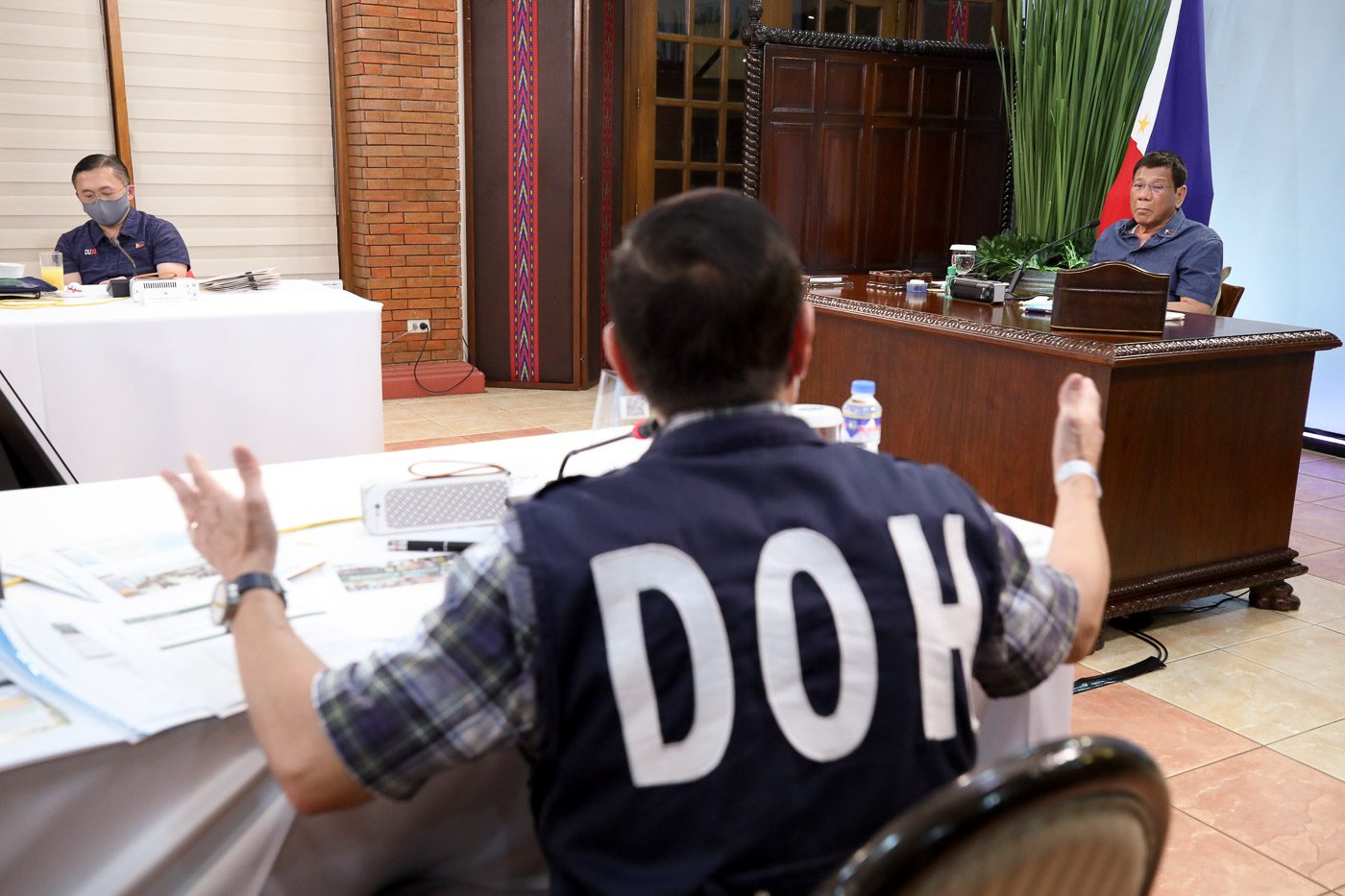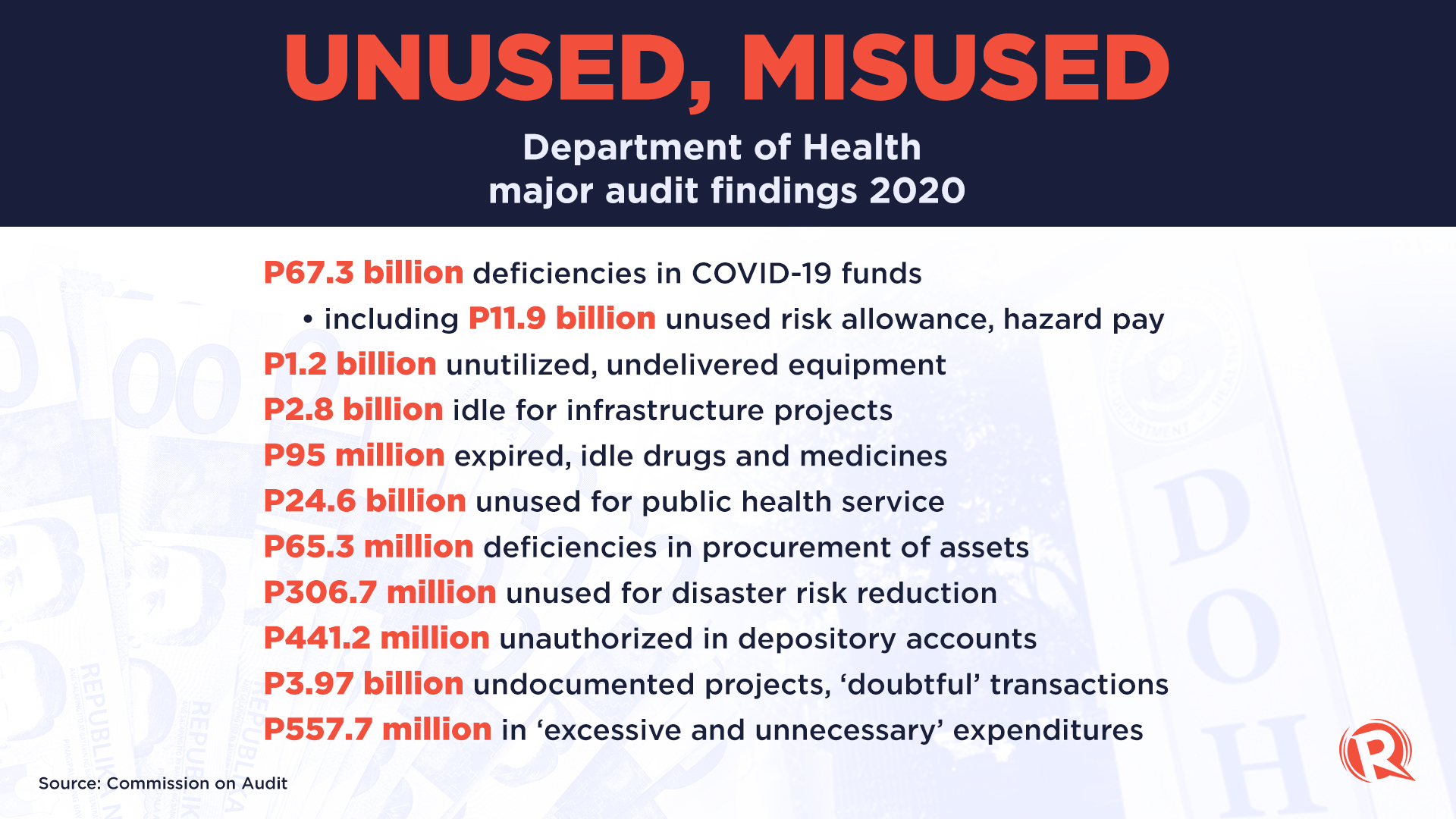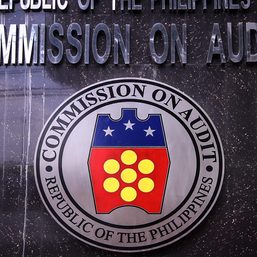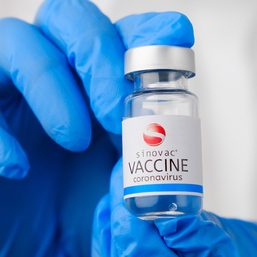SUMMARY
This is AI generated summarization, which may have errors. For context, always refer to the full article.

Some P3.4 billion in foreign aid for the Philippines’ COVID-19 response efforts was left unused in 2020 because the Department of Health dilly-dallied in implementing projects, according to the Commission on Audit (COA).
This was the state auditors’ rejoinder to the DOH’s earlier explanation that they considered in their 2020 audit report on the agency.
“The purpose on the urgency of securing funds from foreign sources will be put to naught if the DOH will dilly-dally the project implementation and not act efficiently,” auditors said in a rejoinder, found on Annex IV of the 2020 annual audit report on the DOH.
This underscores the fact that the DOH was already given a chance to explain during the audit process. Annual audit reports would usually already include comments from agencies, unless they provided none, and in some cases, auditors issue rejoinders or answers to the explanation.
This is seen in the 2020 audit report on the DOH, although some of the agency’s comments and rejoinders were kept in a consolidated management letter (CML) that COA did not publicize.
The P3-billion unutilized foreign aid, and the P11.89 billion unobligated programs were the only two items in the total P67 billion deficiently used COVID-funds that had public comments and rejoinders.
COA said the total P67 billion COVID-19 funds had been deficiently managed, leading to missed opportunities in a pandemic that has claimed thousands of lives, and devastated millions of Filipinos.
In all, COA said: “It can, thus, be said that these funds that remained idle as at year-end were not translated to much-needed health supplies, equipment and services that could have benefitted both the health workers and the general public during the critical times of the pandemic.”
“These billions-worth of public funds could have saved many lives if only these were translated into meaningful programs during the state of calamity/national emergency,” the auditors added.

No specific reason cited for delay
On the P3.4-billion unutilized foreign donation, the DOH told COA that “other activities were not met in 2020 because the project implementation started only in November 2020.”
“The Work and Financial Plan (WFP) for 2020 was only approved last December 4, 2020,” said the DOH.
Auditors noted though that “specific reasons on the delayed commencement of project implementation in November 2020 and approval of the WFP on December 4, 2020 were not presented.”
“The issue is not only on the non-accomplishment of targets, there are lives of the Filipino people that need to be saved in this time of state emergency,” the auditors said.
‘There’s only one DOH under Duque’
The DOH had P11.89 billion in unobligated funds, which means that the DOH had the funds but did not have programs that it can commit payments to.
These were supposedly for hazard pay, and special risk allowance, among others.
The DOH explained that the agency only received the special allotment release orders (SAROs) from the Department of Budget and Management (DBM) on October 30, 2020.
Luzon was first put on lockdown in March 2020, and President Rodrigo Duterte had emergency powers via Bayanihan I by March 24 that same year.
The DOH said these unobligated funds did not come from Bayanihan I, but from Bayanihan II, which Duterte signed in September 2020.
“Upon issuance of the DBM-DOH Joint Circular Nos. 1 and 2 for the implementation of Active Hazard Duty Pay and Special Risk Allowance, respectively, on November 25, 2020, the Financial Management Services (FMS), with the necessary documents secured, have downloaded funds to Centers for Health Developments, operating units and other concerned offices the following day,” the DOH explained to COA.
“Request for downloading of Sub-Allotment Advice (SAA) to cover funding for the provision of meals, accommodation, transportation and life insurance to DOH hospitals was submitted by Administrative Service-Personnel Administrative Division (AS-PAD) to FMS on December 9, 2020,” the DOH added.
Auditors said in their rejoinder that there was a more efficient system to process sub-allotment advice or SAAs, and that is “through proper coordination of various DOH Offices.”
“Regardless of which offices are responsible within the Department, there is only one DOH under the Secretary of Health,” said the auditors.
The DOH also had a dispute of how much it received for COVID-19 response, but the auditors said, “The data gathered were neither taken out of thin air nor the product of COA Office’s mere imagination.”
“These were borne out of the DBM’s official enumeration of allotments received by the DOH, specifically for COVID-19 response,” said the auditors.

COA clarification
Following the public backlash against the DOH, the COA’s central office issued a rare clarification on Friday, August 13, saying there was no finding that funds were lost due to corruption.
“As there are recommendations for compliance by the DOH, the audit process for the deficiencies pointed out has not been completed. Hence, it is premature at this stage to make conclusions on the findings in the Consolidated Annual Audit Report,” said COA’s public information office.
Indeed, the audit is ongoing, because the P67 billion was not the only deficient finding.
“Our continuous audit also disclosed additional deficiencies involving COVID-19 funds in the aggregate amount of ₱1,036,390,245.26 which were not included in the Consolidated Management Letter and these are presented in Annex V,” said COA.
That additional P1 billion deficiency include P358.7 million worth of deficiencies in procurement, P524.9 million worth of fund utilization, P70.9 million worth of donations in-kind, and P81.8 million worth of the scandal-ridden Philippine Health Insurance Corporation (PhilHealth) reimbursement scheme.
“Accompanying the observations and findings are the recommendations made by the auditors for the management of DOH to address the observation and findings,” said COA.
COA said that of the 151 audit recommendations from previous years, DOH has implemented 136.
But for 2020, the independent auditor’s report gave DOH an adverse opinion, which is a low kind of rating, the highest being an unqualified opinion.
“The accompanying financial statements do not present fairly, in all material aspects, the financial position of the Department of Health,” said the independent report.
DOH: All funds accounted for
Health Undersecretary Maria Rosario Vergeire said at the Laging Handa briefing on Saturday, August 14, that they have been given until September to provide additional documents to COA, particularly coming from other units and regional offices.
Vergeire said all funds are accounted for.
“We are open to all types of investigation, hindi po kami aatras diyan. Sana po ‘yung panghuhusga, gawin natin kung kumpleto na po ang nakikita nating ebidensya,” Vergeire said over the government’s briefing Laging Handa on Saturday, August 14.
(We are open to all types of investigation, we won’t back down. We hope any judgment would be reserved until after we see the complete evidence.)
Both the government’s anti-corruption investigators, the Department of Justice (DOJ) and the Office of the Ombudsman, have the power to initiate an investigation. They have done so in the past without the benefit of an audit report, but both are taking a passive stance and said they will let COA process run its course.
Malacañang has taken the same position of withholding judgment until the DOH responds to COA.
Corruption in a strict legal sense needs proof of personal gain.
The Philippine Medical Students’ Association (PMSA) said in a statement that the deficient use of funds at a time of crisis is still considered criminal negligence. – Rappler.com
Add a comment
How does this make you feel?







![[Rappler’s Best] US does propaganda? Of course.](https://www.rappler.com/tachyon/2024/06/US-does-propaganda-Of-course-june-17-2024.jpg?resize=257%2C257&crop=236px%2C0px%2C720px%2C720px)



There are no comments yet. Add your comment to start the conversation.